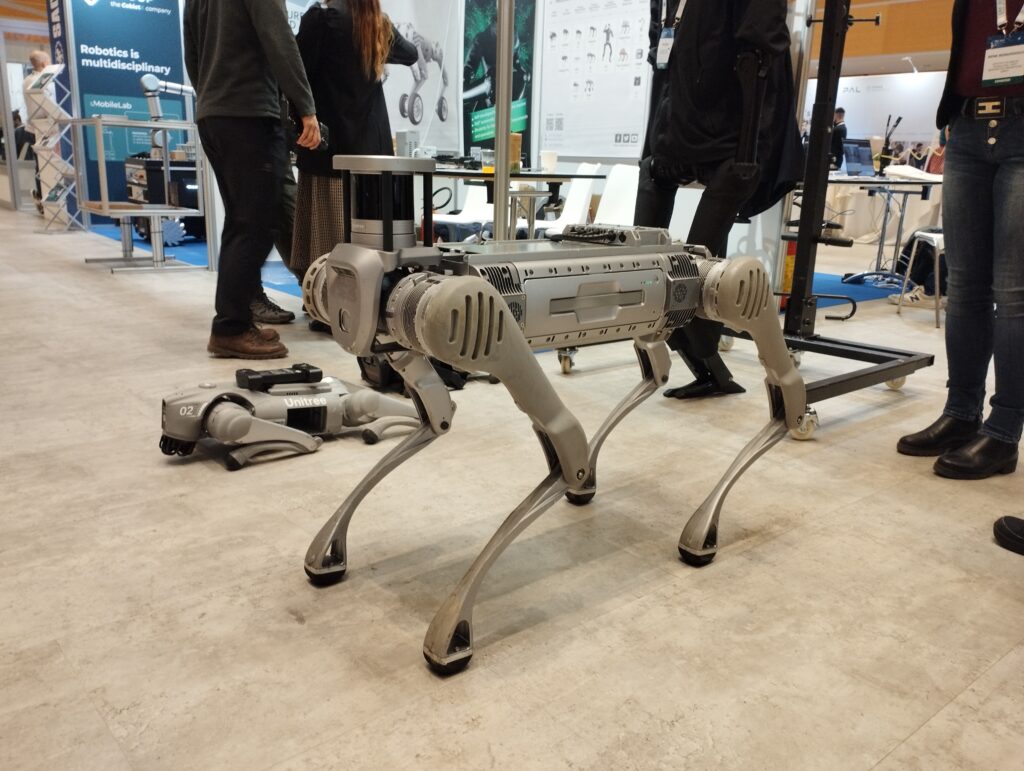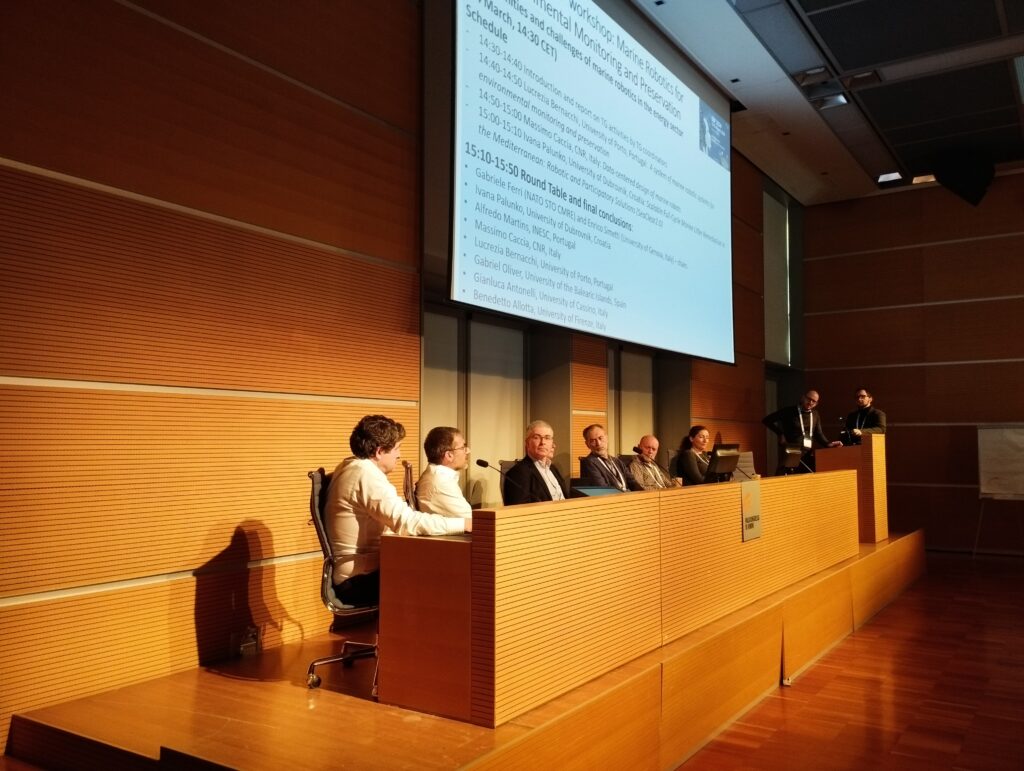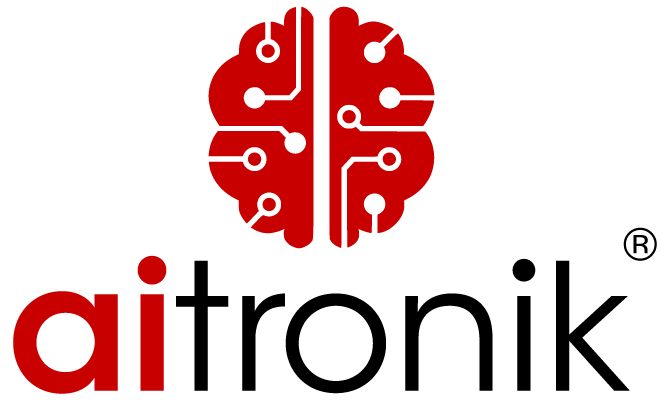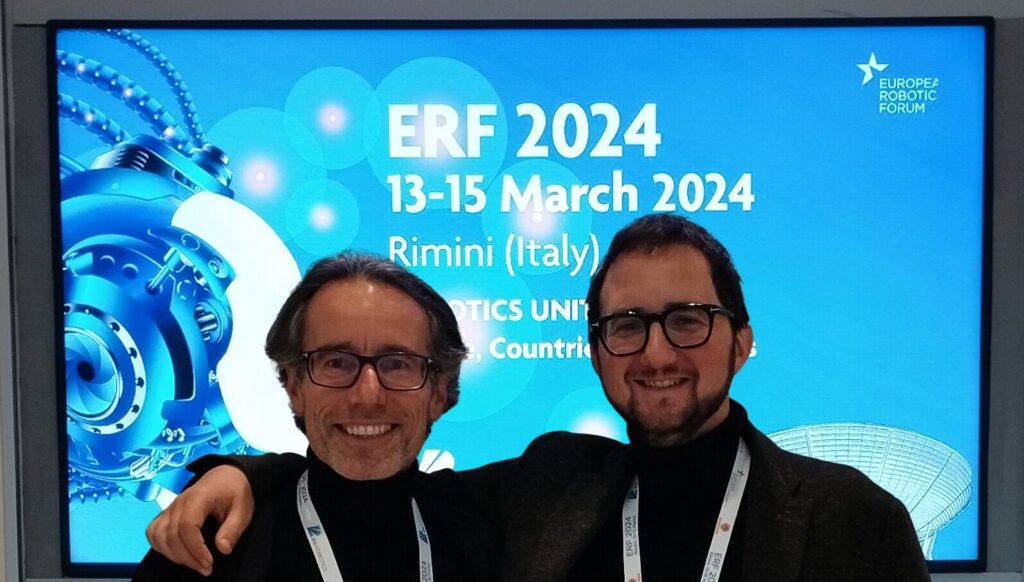We’re back from the European Robotics Forum 2024, held in Rimini from 13 to 15 March.
Among artificial dogs, humanoids, and collaborative AGVs, research institutions and robotics companies showcased at ERF their innovations in the field of robotics. In the meantime, inspiring keynote speeches and workshops shared the latest great results the robotics community has obtained.

We were there for Day 2. Here is our recap.
𝐇𝐮𝐦𝐚𝐧-𝐥𝐞𝐯𝐞𝐥 𝐏𝐞𝐫𝐟𝐨𝐫𝐦𝐚𝐧𝐜𝐞 𝐰𝐢𝐭𝐡 𝐀𝐮𝐭𝐨𝐧𝐨𝐦𝐨𝐮𝐬 𝐕𝐢𝐬i𝐨𝐧-𝐛𝐚𝐬𝐞𝐝 𝐃𝐫𝐨𝐧𝐞𝐬
In the morning, Prof. Davide Scaramuzza gave an inspiring keynote speech. His high-speed autonomous vision-based aerial drones have become legendary in the robotics community, and event cameras have become a must-have for high-speed robotic applications.
𝐄𝐦𝐩𝐨𝐰𝐞𝐫𝐢𝐧𝐠 𝐭𝐡𝐞 𝐅𝐮𝐭𝐮𝐫𝐞 𝐨𝐟 𝐀𝐞𝐫𝐢𝐚𝐥 𝐑𝐨𝐛𝐨𝐭𝐢𝐳𝐞𝐝 𝐈𝐧𝐬𝐩𝐞𝐜𝐭𝐢𝐨𝐧 𝐚𝐧𝐝 𝐌𝐚𝐢𝐧𝐭𝐞𝐧𝐚𝐧𝐜𝐞 Workshop, organized by Prof. Emad Samuel Malki Ebeid and colleagues.
Are the latest advancements in aerial robotics, contact inspection, and human-robot interaction ready for industrial applications?
- Right after the keynote speech, the workshop answered by providing the latest research outcomes in EU projects AERO-TRAIN and Drones4Safety.
- The former aims to perform maintenance operations in remote, unsafe, and hard-to-reach asset locations, while the latter is developing a system of autonomous, self-charging, and collaborative drones to inspect transportation infrastructures continuously.
- The discussion then converged to the current European regulation for aerial drones.
𝐌𝐚𝐫𝐢𝐧𝐞 𝐑𝐨𝐛𝐨𝐭𝐢𝐜𝐬 𝐟𝐨𝐫 𝐄𝐧𝐯𝐢𝐫𝐨𝐧𝐦𝐞𝐧𝐭𝐚𝐥 𝐌𝐨𝐧𝐢𝐭𝐨𝐫𝐢𝐧𝐠 𝐚𝐧𝐝 𝐏𝐫𝐞𝐬𝐞𝐫𝐯𝐚𝐭𝐢𝐨𝐧 Workshop, organized by Dr. Gabriele Ferri and Prof. Enrico Simetti.
After lunch, it was clear that interoperability is critical in research and industrial Marine Robotics.
- Dr. Lucrezia Bernacchi presented the impressive marine robotic systems developed at the Universidade do Porto, focusing on the software toolchain.
- Dr. Massimo Caccia promoted the standardization of messages on board AxVs and the adoption of FAIR (Findable, Accessible, Interoperable, Reusable) principles.
- Prof. Ivana Palunko highlighted how SeaClear 1.0 & 2.0 Projects European-funded project develop an integrated approach to address the full cycle of marine litter to restore, protect, and preserve the health of our oceans, seas, and waters by 2030.

ERF was full of incredible events. Thanks to euRobotics aisbl, the local organizers, and all the speakers for the great effort they put into such a remarkable event.
See you at ERF 2025 in Stuttgart!



